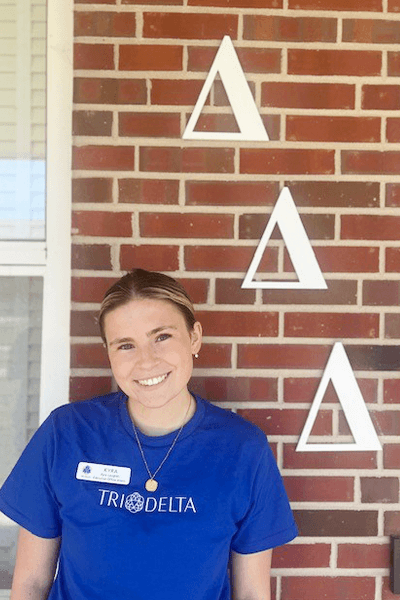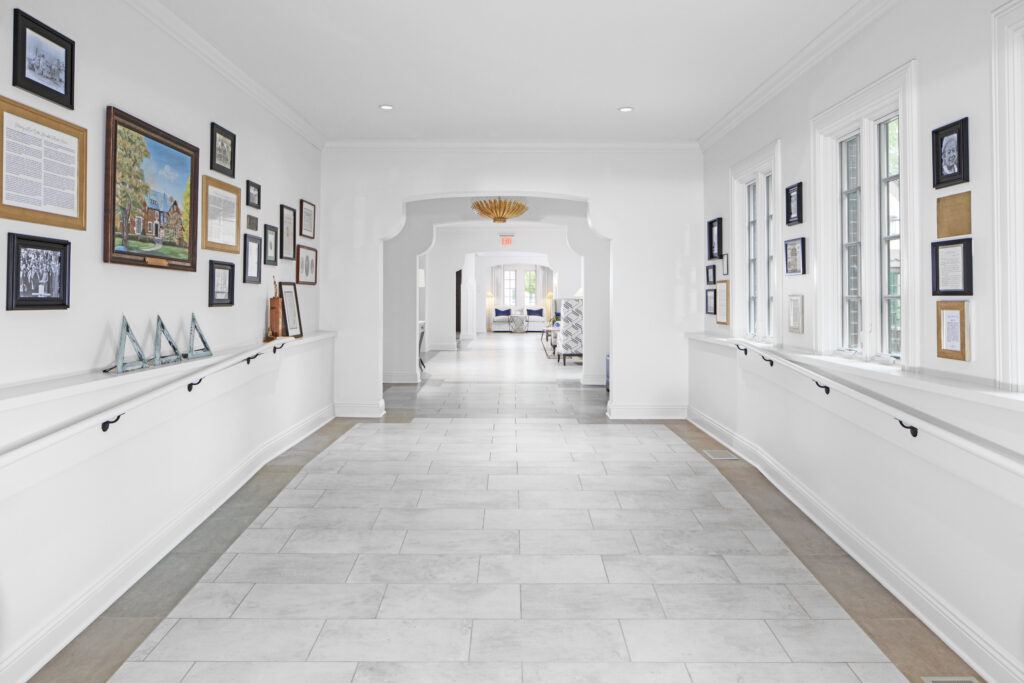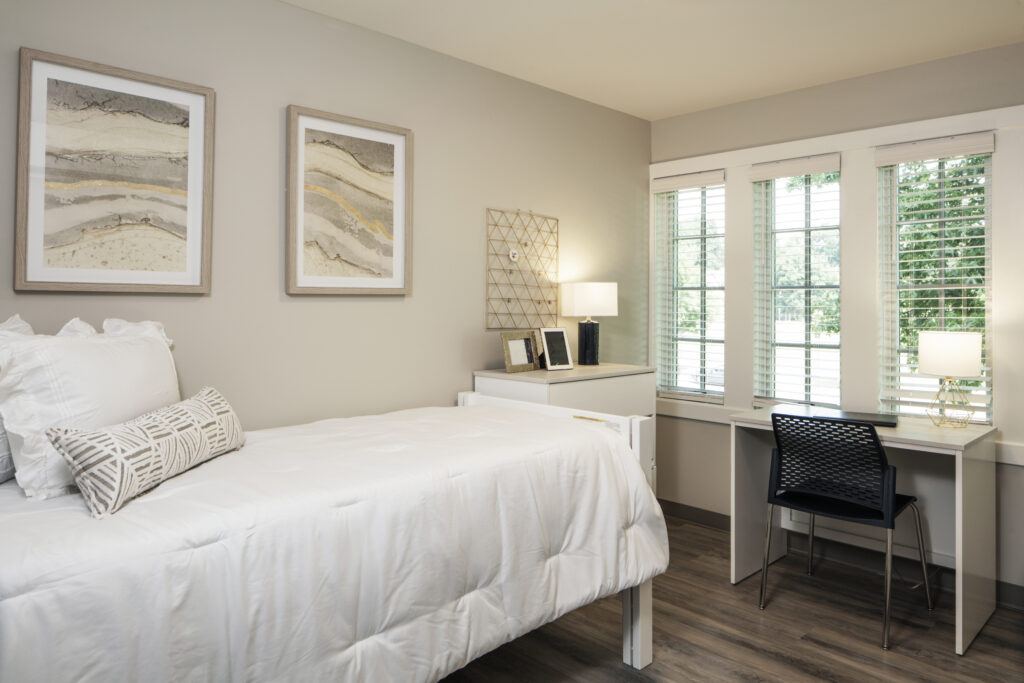What Does It Really Mean To Feel at Home?
At Tri Delta, we believe our chapter houses should be more than just places to live—they should be welcoming, accessible spaces where everyone belongs. That’s why Tri Delta Housing partnered with Rutgers University’s Occupational Therapy Doctorate program to develop a new Accessibility Screening Tool and resource to help foster inclusion across our chapter homes.
Meet Kyra

Kyra Loughlin, James Madison, is in her final year of Rutgers’ doctoral program in occupational therapy. This semester, she’s spending 14 weeks working with Tri Delta Housing on her experiential capstone project, focusing on how to make our homes and spaces more inclusive and supportive of members with diverse abilities.
Kyra initially thought she’d go into pediatrics, but her path shifted after working in inpatient rehab with individuals recovering from strokes and brain injuries. There, she discovered her passion for Universal Design—an approach that curates spaces with everyone in mind from the start, often without major structural modifications.
“ADA compliance is just a starting point,” Kyra explains. “Universal Design builds off ability. It’s about what people can do and how we can enhance that, whether that’s tactile dots in the kitchen for low vision or flipping a door hinge to make a space easier to navigate.”
What She’s Working On
As part of her project, Kyra developed an Accessibility Screening Tool that housing teams can use to evaluate how inclusive their chapter homes are and where they can improve. Piloted in several Tri Delta houses, the tool has already revealed that even ADA-compliant spaces can fall short when it comes to daily usability and comfort.
Tri Delta is adopting Universal Design principles to go beyond minimum compliance and create more equitable, welcoming environments for all members. This research-based, experiential approach aims to change how we think about accessibility, not as an add-on but as a foundation for inclusion.
Kyra is helping launch a broader initiative in the fall of 2025: a learning module, access to the screening tool and a list of short- and long-term solutions that Tri Delta Housing and local house corporations can use to improve their spaces. Some are simple, like adjusting furniture placement or adding contrast markings on stairs, while others may be part of a long-term capital plan.


Why It Matters
This work is about more than checklists or backdoor ramps. It’s about ensuring that no member feels limited when they visit a Tri Delta home or space and that all Tri Deltas, guests and visitors can gather, connect and fully participate in our sisterhood.
“It’s not just about getting through the door—it’s about what happens once you’re inside. By incorporating Universal Design principles, we’re creating environments where people can thrive, not just get by.”
Over time, Kyra’s work will help shape how Tri Delta plans for and prioritizes inclusion in our homes—a clear reflection of our values and our commitment to making everyone feel that they belong in Tri Delta.
Leading the Way
We’re proud to be leading the way in making accessibility a priority, and we’re proud of Kyra, whose passion and expertise are helping us move forward with purpose.
View her manuscript to learn more about Kyra’s experiential capstone project methods and outcomes.


